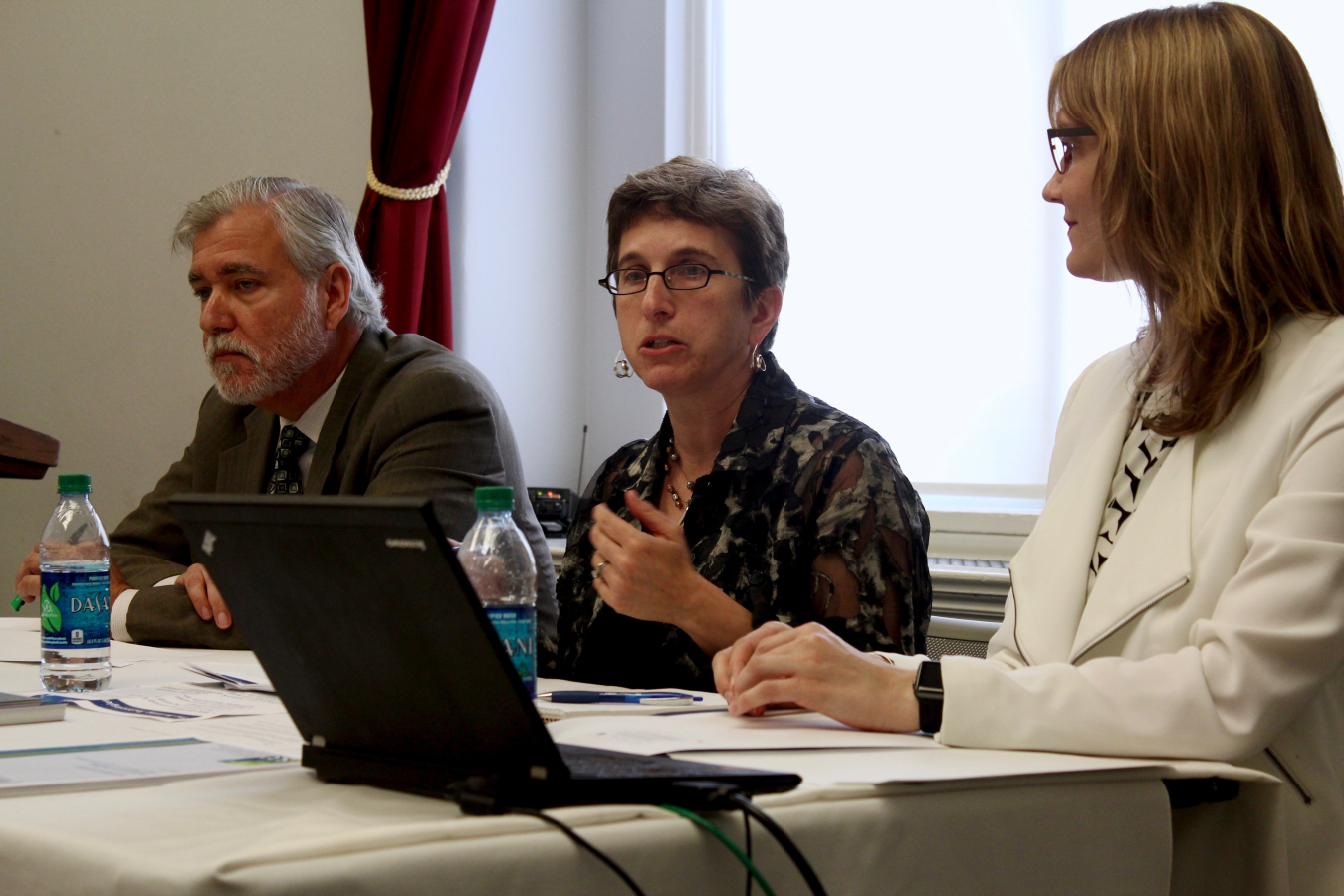BTO Senior Advisor and Program Manager Joan Glickman highlighted DOE’s recent achievements in in developing standardized tools and practices.
June 14, 2016
Joan Glickman, senior adviser and Home Energy Score program manager at DOE's Building Technologies Office, speaks about the importance of energy-efficiency standardization at High Performance Building Week on Capitol Hill.
DOE emphasizes importance of standardizing efficiency data and practices at High Performance Building Week on Capitol Hill
On Monday, June 13, Building Technologies Office (BTO) Senior Advisor and Program Manager Joan Glickman highlighted DOE’s recent achievements in developing standardized tools and practices at the High Performance Building Congressional Caucus Coalition’s Congressional Briefing, one of several events taking place as part of High Performance Building Week 2016.
Glickman stressed that creating standard practices for measuring and reporting building energy efficiency information is vital to reducing energy use in our nation’s commercial and residential buildings. Collaboration among public, private, and non-profit stakeholders in developing standards is central to ensuring widespread uptake. To achieve this end, DOE is committed to continued engagement with the American National Standard Institute (ANSI)’s Energy Efficiency Standardization Collaborative (EESCC).
“Our partnership with the Department is key to our work encouraging use of standard practices at scale,” says Dain Hansen, Senior Vice President of Government Affairs at the International Association of Plumbing and Mechanical Officials, and Chair of the High Performance Building Coalition. “Collaboration between diverse representatives from both the public and private sectors is fundamental to creating well-coordinated and broadly used standards that benefit both industry and consumers.”
ANSI established the EESCC in 2012 to convene experts from government, industry, and other sectors to identify areas where standard practices have already been developed, and gaps where standards are needed. DOE representatives, including Glickman, participated in a number of working groups whose efforts culminated in the release of EESCC’s 2014 report, Standardization Roadmap: Energy Efficiency in the Built Environment. Last month, EESCC released a Progress Report highlighting measures underway to close the over 100 standardization gaps identified in the roadmap.
Through its work with ANSI, EESCC, and others, the Building Technologies Office helps design and share strategies for implementing standard tools and practices nationwide.
“Greater energy efficiency offers billions in energy cost savings in our nation’s buildings,” says Dr. Kathleen Hogan, Deputy Assistant Secretary for Energy Efficiency at DOE. “This collaboration helps improve consistency in how energy efficiency is offered, improving quality, reducing costs, and helping more consumers benefit.”
One area where BTO has contributed is in standardizing management of building energy data. Highlighted in the report, BTO established the Standard Energy Efficiency Data (SEED) Platform and the underlying Building Energy Data Exchange Specification (BEDES) to help state and local governments easily combine building data from multiple sources, clean and validate it, and share the information with others.
“As more jurisdictions use SEED, this common platform for data management helps them integrate data and publish it in a common format. This builds consistency of available data and enables users to make data-driven decisions around energy efficiency,” says Harry Bergmann, a DOE Fellow supporting SEED. “We are excited to support standard data management practices that enable consistency in the market and progress in building energy efficiency.”
High Performance Building Week continues through Friday, June 17 on Capitol Hill, and attendance is free and open to the public.

